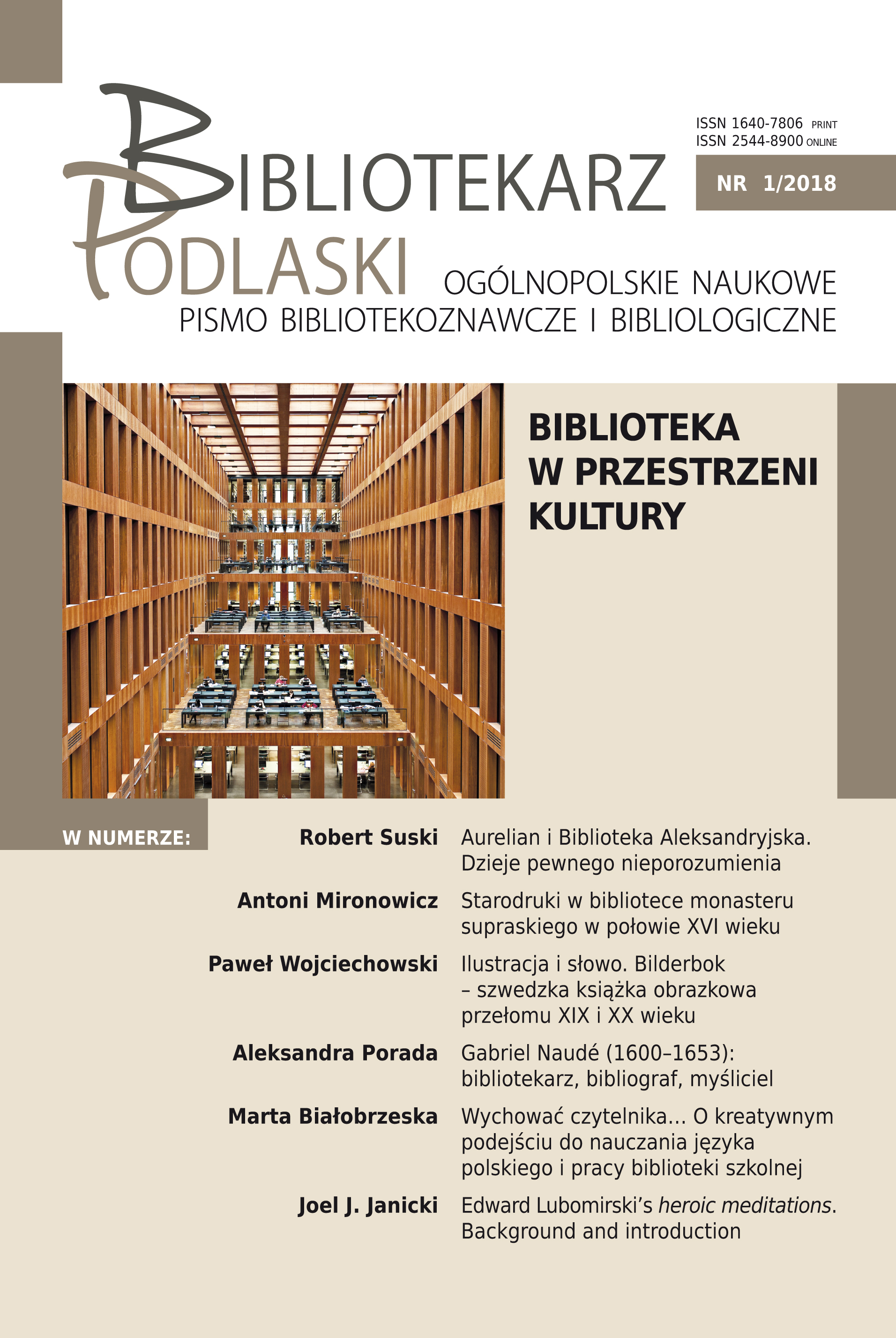Abstract
The article discusses the problems presented in the films Wild Strawberries (1956) and the Seventh Seal (1957) directed by Ingmar Bergman from the perspective of the table, which becomes a community space in them, giving a chance to overcome death and establishing
a dialogue with another human being. Arkadius Block, the hero of the Seventh Seal with him, discovers the meaning of life, turns to others, shares not only the meal, but also the human experience of the end. In contrast, the hero of Wild Strawberries , evokes some ideas of the past about the community of the table, which help him to understand the truth about himself, enable him to return to establishing relationships with his fellow men. The Swedish director expresses that people entering his space give it meaning, because it can be a field of agreement, but also a division. This underlines the importance of the table community, which is the expression of humanity.
References
Ackerman D., Historia naturalna zmysłów, tłum. K. Chmiel, Wydawnictwo „Książka i Wiedza”, Warszawa 1994.
Bahtin M.M., Twórczość Franciszka Rabelais’go a kultura ludowa średniowiecza i renesansu, red. S. Balbus, tłum. A. Goreń i A. Goreń, Wydawnictwo Literackie, Kraków 1975, Biblioteka Studiów Literackich.
Balbierz J., i Zmudziński B., Ingmar Bergman, Uniwersytet Jagielloński. Akademickie Centrum Kultury „Rotunda”, Kraków 1993.
Barthes R., Czytanie Brillat-Savarina, [w:] Lektury, red. M.P. Markowski, tłum. E. Wieleżyńska, KR, Warszawa 2001, s. 200–201.
Bergman I., Obrazy, tłum. T. Szczepański, Wydawnictwa Artystyczne i Filmowe, Warszawa 1993.
Jankélévitch V., Quoddité jest niezniszczalna. Nieodwołalność nieodwracalności, [w:] Wymiary śmierci, red. S. Rosiek, tłum. M. Jastrzębiec-Mosakowski, Słowo/Obraz Terytoria, Gdańsk 2002, s. 343–364.
Kryściak A., Przyjemne zniewolenie, „Teksty z ulicy. Zeszyt memetyczny”, 2006, t.10, s. 89–95.
Szczepański T., Zwierciadło Bergmana, Słowo/Obraz Terytoria, Gdańsk 2002, Wyd. 2, popr, Artyści.
Toussaint-Samat M., Historia naturalna i moralna jedzenia, tłum. A. Matusiak i M. Ochab, Grupa Wydawnicza Foksal, Warszawa 2015, 2. wyd.
Articles published in the “gold open access” mode on the basis of a non-exclusive license agreement between the publisher and the author. Permitted use:
- the publication may be read and stored on any device,
- the publication may be cited (with obligatory reference to the author, the title of the text, as well as the full title, bibliographic address of the issue and page of the journal)
The editorial team of “Bibliotekarz Podlaski” implements an open access policy by publishing materials in the form of the so-called Gold Open Access. From volume 42 (issue 1/2019), the journal is available under the Creative Commons license (Attribution – ShareAlike: CC BY-SA).
The key declarations of the Open Access and Open Science movement, which we fully support, are available on the CEON Open Science website.
COPYRIGHT:
The editorial team of “Bibliotekarz Podlaski” implements an open access policy by publishing materials in the form of the so-called Gold Open Access. The journal is available under the Creative Commons license – Attribution – ShareAlike 4.0: International: CC BY-SA 4.0).
The key declarations of the Open Access and Open Science movement, which we fully support, are available on the CEON Open Science website.
“Bibliotekarz Podlaski” allows its readers to read, download, copy, distribute, print, search and link to the full content of articles. We enable full, immediate, unlimited (both in a territorial, temporal and technical sense) open access to all published content, in accordance with the principle that freely available research increases and accelerates the global development of science and the exchange of knowledge.
The editorial team of “Bibliotekarz Podlaski” encourages authors to place articles published in the journal in open repositories (after the review or the final version of the publisher), provided that a link to the journal’s website is provided.
The journal does not charge the authors any fees for accepting and publishing their texts.

